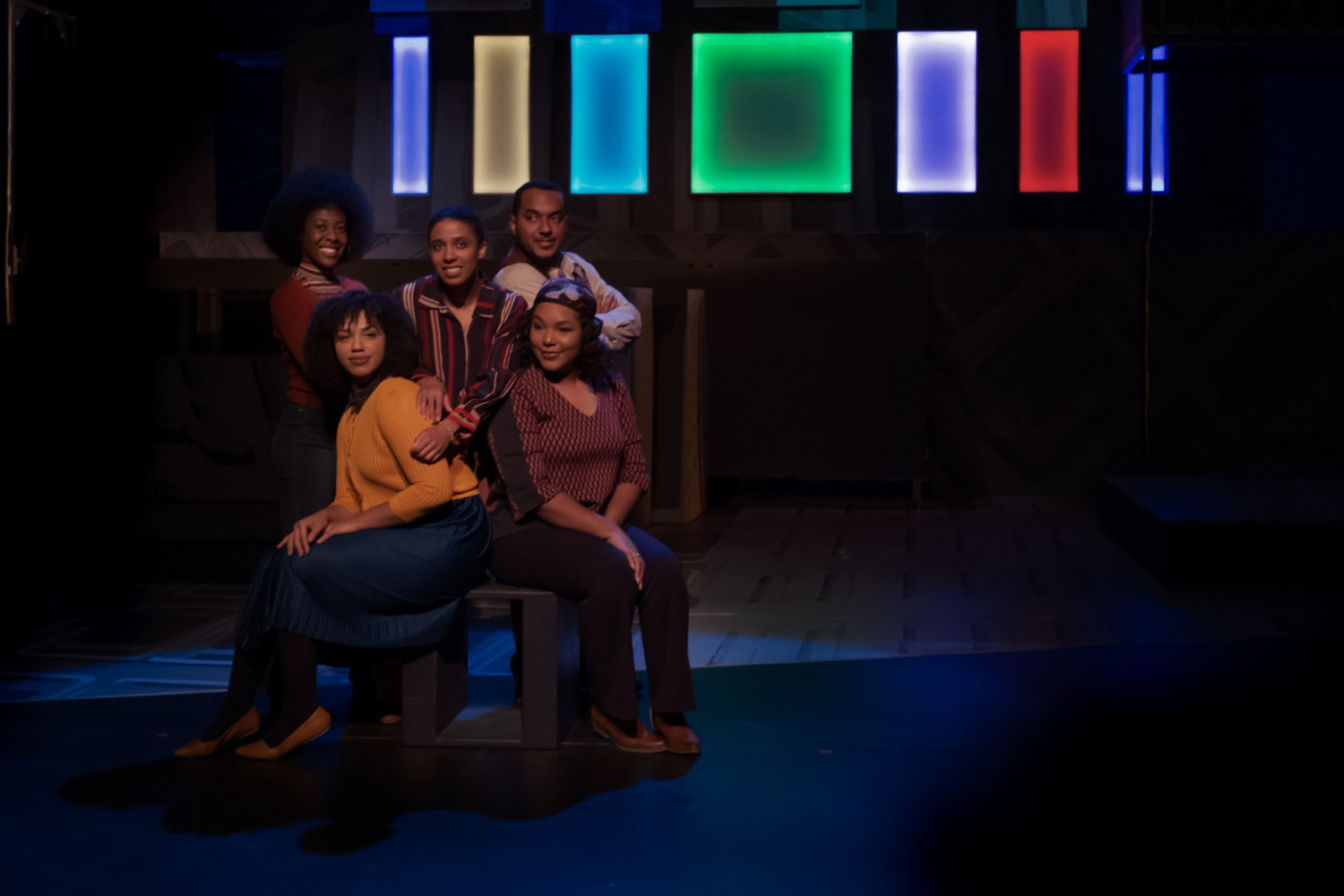Review: BLACKOUT at D. B. Clarke

Blackout has been mounted by Tableau D'Hote Theatre. Directed by Mathieu Murphy-Perron, with assistant direction by Shanti Gonzalez and Tamara Brown, it will run through February 10th at the D. B. Clarke Theatre in Concordia University's Hall Building. Blackout challenges the dominant narratives of the events leading up to and following the what is commonly referred to as the "Concordia computer riots," or the "Sir George Williams Affair," where a group of Black students and their supporters occupied the 9th floor of the Hall building to protest the university's management of a racism complaint.
In May of 1968, six West Indian students at Sir George Williams University (now a part of Concordia University), compiled a list of 13 complaints against their professor, Perry Anderson. Many of these complaints were about behaviour and actions that were explicitly racist in nature.
Blackout combines traditional theatre, dance, direct address, and music. Actors representing the students are interacted with by a chorus, dressed in beautiful traditional clothing. In addition to these two groups, Lucinda Davis and Dakota Jamal Wellman lapse in and out of different supporting characters. In a pointed reversal of a mainstream tendency to cast white actors as people of colour, Wellman and Davis portray all of the play's white characters, utilizing a collection of prominent white props to represent the transition. Set designer Sophie El Assad provides the work with a modular set that perfectly evokes the Hall Building's unmistakable pseudo-brutalist architecture, in a way that only serves to bring out the pitch-perfect costumes styled by costume designer Noémi Poulin.
I want to draw attention to the incredibly strong acting talent that is the cast of Blackout. As a fan of both theatre and film, I am often somewhat put off with what I feel is a failure to convey subtlety in theatre acting. When I bring this up, I am often told repeatedly that that is simply the standard in theatre. Blackout blows that away, featuring a cast of actors who can reach the most stunning heights of drama and comedy, but are also able to convey subtle shifts in mood, or heartbreaking displays of emotions, with glances, twitches, and minor changes in facial expressions. The result is an expression of emotion that plays to the back row, but which never comes across as overwrought or cheesy. Briauna James carries emotional lows that left me weeping, and does so with dignity, grace, and honesty. Michelle Rambharose portrays a rowdy political radical in a way that is lovable and good-humoured. Three-time Montreal English Theatre Award winner Lucinda Davis is the backbone to the piece, owing both to the huge range of characters she plays and the level of excellence to which she portrays them. I hadn't picked up on the white-prop-inidcates-white-character trope the first time it was used, and she signalled playing a white Quebecois student immediately by the strength of her voice alone.
On January 29th, 1969, an occupation of the computer lab on 9th floor of the Hall building began. It would grow to involve more than 400 students.
Blackout provides a rigorous analysis of the frustrations of resistance movements, based on extensive research and historical documentation. The piece conveys the way that the most harmful effects of racism are often in the way racism manifests subconsciously. If a white person cannot hear an expression of anger or frustration from a person of colour without immediately assuming they are being violently threatened, racism is probably at play. Along with the characters, the audience feels the glacial pace of institutional change, and its reliance on policy and bureaucracy. We're left wondering if that structure is a power move designed to benefit the powerful.
On February 11th, 1969, acting president of Sir George Williams D. B. Clarke called in Montreal's riot police to clear protestors out of the computer lab. This decision was made over allegations that the protests had turned "violent", which is to say that protesters had caused damage to university property by throwing computer log documents out of the windows. During this time, a mysterious fire was set in the building. On the streets below, onlookers chanted racist epithets and calls to let the students burn. During the arrests, many protesters were injured, including a woman who was struck in the head with a baton. She died from her injuries two weeks later.
Blackout is a work that isn't afraid to be political, or to take sides, or to make difficult calls. Blackout reminds us that in some debates, the righteous path isn't right up the middle-when you're faced with racism, there is no "middle ground." It questions he idea that a dollar amount can be held up as some kind of reasonable counterpoint for violence against living human beings. Why are we comfortable putting a price tag on a human life? What about human dignity?
In 1971, Loyola College and Sir George Williams combined to create Concordia University. The D. B. Clarke theatre was named in honour of the man who called in the riot police.
In 2019, Blackout opened in the D. B. Clarke theatre.
--
You can buy tickets for the rest of the run of Blackout here.
February is Black History Month, and I encourage you to consider contributing money, time, resources, and educational efforts to Black initiatives.
Reader Reviews

Videos
